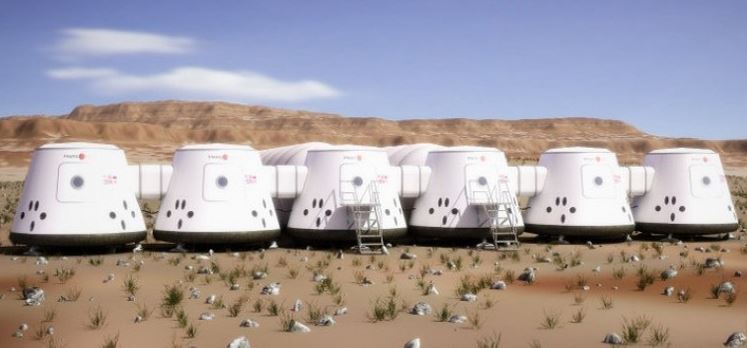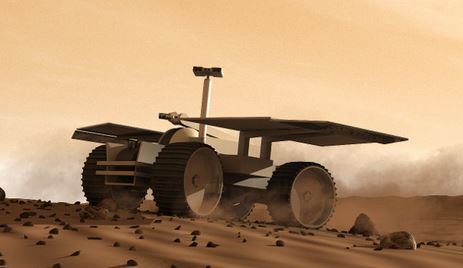Mars One, the Netherlands-based non-profit organization that plans to have a permanent colony of humans based in Mars by 2025, will announce the final 100 applicants shortlisted for the one-way trip to the Red Planet next week.
The Dutch organization is a bit of a mystery. NASA says a manned mission to Mars is still decades away, but Mars One insists it will not only send people to Mars by 2024, it also claims it will have set up a thriving human colony there. A colony in which the occupants will be able to spend the rest of their lives (with average lifespans).
Mars One says it will be announcing who will be included in the shortlist of 100 applicants on Monday. Organizers have had to whittle down the final number from a total of 200,000 people who had put their names forward for the one-way journey.

Simulation Outpost Alpha – where colonists will train on Earth to familiarize themselves with life on Mars. (Image: Mars One)
In this historic mission, all space travelers will go to Mars, and stay there, i.e. never come back.
First a satellite will be sent to Mars in 2018, then a rover two years later, followed by a cargo vessel with a habitation module, where the first colonists will live, in 2022.
Scientists the world over say the plan is a pipe dream, arguing that current technology will not be able to get people onto the Red Planet and keep them there alive. They are certain the whole mission will end in disaster.
The private spaceflight project is led by Bas Landsdorp, a Dutch entrepreneur, who first announced his Mars One mission plans in May 2012.

The Mars One Rover will not be a scientific vehicle. It will be a capable and powerful tool, with a robotic hand to carry out several different tasks. It will pull a trailer and will transport landing modules. (Image: Mars One)
Mr. Landsdorp says every step of the colonists’ journey will be documented for a reality TV program.
Feasibility of the mission
The Mars One scientific team admits that its mission is complex, but insists it is definitely feasible. They say the science and technology required to place human beings on the Red Planet currently exist.
Mars One writes on its website:
“Much of what was learned from Skylab, Mir and the International Space Station has resulted in vital data, experiences with systems and related know-how — all of which are applicable to living on Mars.”
“Mars One is not the first organization to ponder upon the idea of a manned mission to Mars. Blueprints of a Mars human settlement are flung across much of history– from science fiction books to dossiers of national space agencies. And yet, no human has landed on Mars to this day.”
Video – Mars One Crowdfunding Campaign
